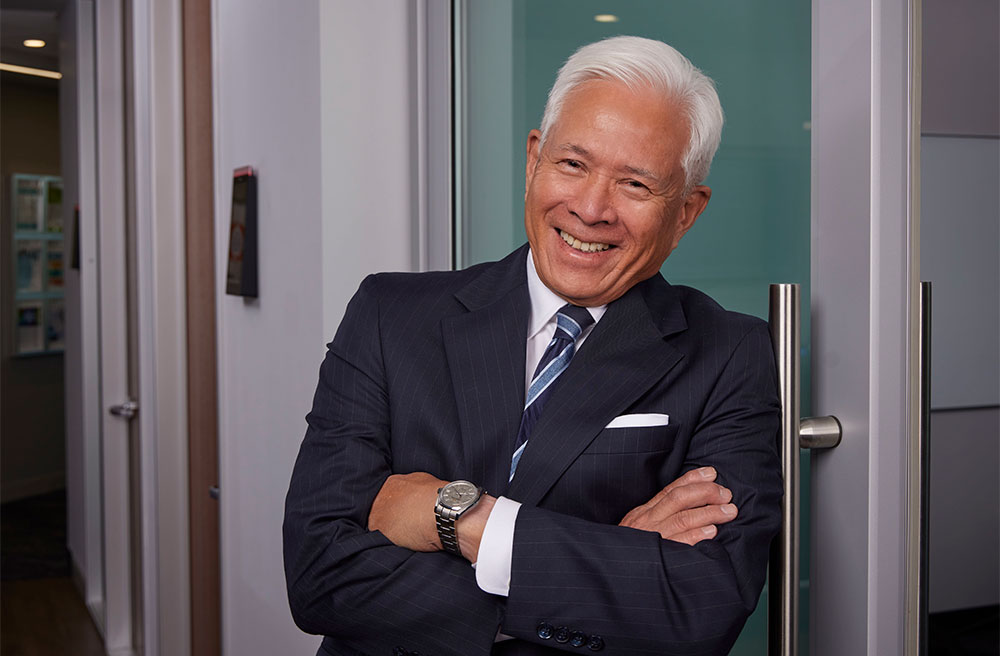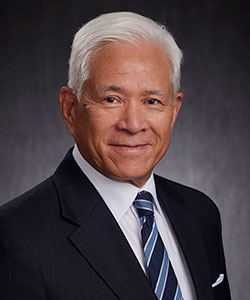A JAMS Q&A Session: Shining the Spotlight on Marc Fong
Please provide a snapshot of your legal career prior to joining JAMS.
In 1978, I founded Fong & Fong APC with my brother Ric. I was primarily responsible for litigation and transactional matters. My areas of practice included real property, homeowners association disputes, construction defects, partnership disputes, startups, commercial matters and employment.
I was also a co-founder of a biotech company and served as its general counsel, handling formation issues, stock issuance, licensing agreements, NDAs, employer/employee relationships and regulatory issues. The company was sold a number of years ago.
Why did you pursue alternative dispute resolution?
Back in the ’80s when I was actively engaged in homeowners association construction defect litigation, ADR was a prerequisite to setting a trial date. Not surprisingly, my interest in ADR grew because of the more than 95% settlement rate I experienced. I found a massive savings in fees and costs in not having to go to trial. This made me want to expand my practice to include alternative dispute resolution. Now that I have fully committed myself to being a neutral, my ADR practice is a labor of love.
What influenced you to pursue a career in law?
My dad, who was a serial entrepreneur, had the greatest influence on my pursuing a legal career. When I was very young, he said to my brother Ric and me, “Boys, you can do whatever you want. I just want you to go to law school.” After Ric and I became lawyers, my sister and younger brother became lawyers. Later, my son and two cousins also became lawyers. I’m happy to say I also have a grandson who has expressed interest in becoming a lawyer, and I plan to take him to the Sacramento RC so he can see what grandpa does.

What are some of the highlights of your career to date?
From 1991 to 1995, I served as president of the Leukemia Society of America (Northern California Chapter) in response to the loss of my 8-year-old son Johnnie to this terrible disease. To honor my son, I committed to making a difference in the lives of others affected by the disease and advancing the society’s mission through awareness campaigns, fundraising efforts and advocating for research into leukemia treatments and cures. This work has been, and always will be, one of my life’s highlights.
On the ADR front, I was the recipient of the Anne K. Meline Service Award for outstanding service to the 3rd District Court of Appeal’s Mediation Program. I was also selected by 3rd District Court of Appeal Justices to serve on the court’s Mediation Committee.
I serve as president of the Mediation Society, a San Francisco Bay Area–based professional organization comprised of experienced mediators in commercial disputes and civil litigation.
And recently, I’ve been involved in mediation training, including a training for judges in the Judicial Council of California’s Temporary Assigned Judges Program, appellate mediators for the 6th District Court of Appeal and California Department of Transportation attorneys.
How would you describe your mediation and arbitration style?
Having been trained in a variety of mediation techniques, I tailor my approach to the parties, the lawyers, their interests, the conflict dynamic and the legal issues involved. If the case does not settle at mediation, I always follow up to see if settlement discussions can continue.
With respect to arbitration, I have a managerial style and try to set that tone early on by sending out a comprehensive checklist and asking the attorneys to meet and confer on many of the checklist issues, which I incorporate into my scheduling order. The checklist also outlines my expectations for the arbitration in terms of discovery, rules of evidence, objections regarding exhibits and preference for transcripts. My objective is to have counsel thinking about what the arbitration will look like before the preliminary hearing. This has a salutary effect on efficiently moving the preliminary hearing forward.
What do you enjoy the most about mediating?
What I enjoy most about mediating is getting to know the parties and what makes the parties and their lawyers think the way they do. I use that understanding to design a mediation process that brings the parties together, which leads to parties exchanging settlement options. Ultimately, my goal is to get the parties to settle their dispute, which I find extremely satisfying.
What can you tell us about your settlement style, process and/or philosophy? How do you handle difficult personalities?
In most, if not all, mediations, I convene a private pre-mediation call with each side. My goal is to privately cover all the factors that are driving the conflict, including the personalities. If the client is present, it is a potential opportunity for me to hear directly from the client. Much intel can be gleaned from that pre-mediation interaction.
At the mediation, I set forth the agenda for the day. I avoid lecture and try to facilitate a conversational tone. My goal is to create a collaborative atmosphere and promote quality interactions between counsel and the parties at this early stage.
In the next phase, I start exchanging relevant information with each side. Sometimes there are questions that lead to further exchanges of information or clarification. Once that is concluded, I attempt to help the parties define and organize the issues. Often the parties want to rush to a discussion of how much money is going to exchange hands. This phase is an attempt to educate the parties that there is much more than the question of how much money is going to be paid. For example, the parties may wish to consider the timing of the payment, the enforceability of the agreement, the scope of the release, confidentiality and nondisparagement.
Often parties want to jump ahead without fully understanding their interests and, as a result, engage in premature bargaining. This is a mistake. The parties need to first understand what matters to them and then decide what settlement options work for them. Only after that can they fully prepare a negotiating plan.
Finally, after the interests are defined, the parties can begin to exchange their options for settlement and get the case resolved.
Did you have a mentor? If so, what was the most memorable advice you received?
I have had more than one throughout my career. I consider all my trainers at the U.S. District Court and the various Courts of Appeal my mentors. They have all played a valuable role within my career and training.
Reflecting on memorable advice throughout my career, I think a common theme is to listen deeply and be curious. Ask questions so you fully understand the issues, motivations and the framework for potential settlement. Finally, be persistent. Persistent mediators are adept at adapting their strategies to changing dynamics to keep the mediation process moving forward.
I have found service to be not only gratifying, but a way to expand my professional network, which has fueled the growth of my ADR practice.
What is your favorite pastime?
I have many. Some of them are spending time in the great outdoors, athletic challenges, improving my ADR skills, spending time with family and cooking meals for gatherings with family and friends.
Disclaimer:
This page is for general information purposes. JAMS makes no representations or warranties regarding its accuracy or completeness. Interested persons should conduct their own research regarding information on this website before deciding to use JAMS, including investigation and research of JAMS neutrals. See More

